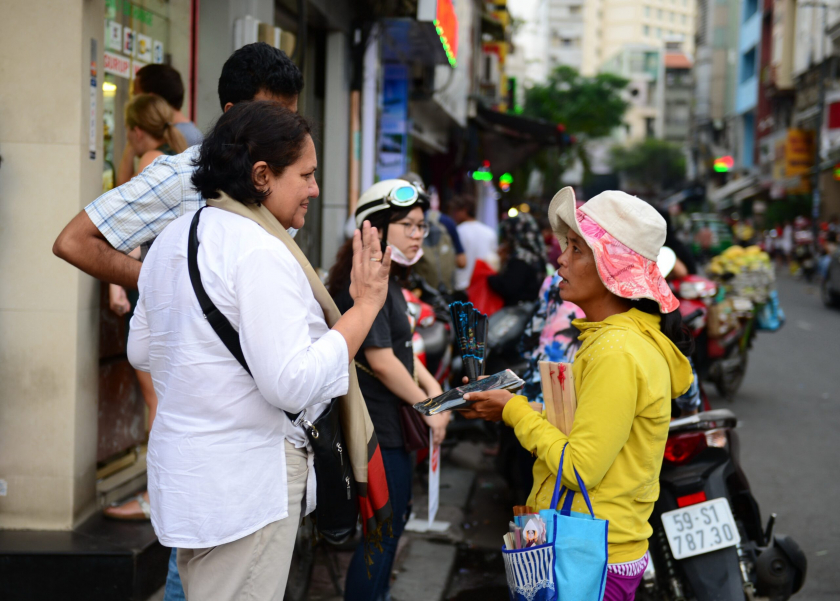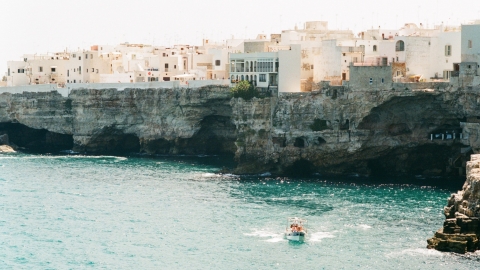For tourists who often choose to travel independently, encountering such situations when shopping or eating at eateries and restaurants is commonplace.
However, for those who frequently go on tours and use all-inclusive packages from travel companies, being overcharged or buying goods at prices higher than usual due to additional commissions for tour guides and drivers is not uncommon.
This illustrates that price gouging has become an endless problem, sometimes stemming from those working in the industry, significantly hindering the development of Vietnamese tourism.
My friend, who works as a tour guide for a travel company, shared that he knows of some jam factories in Da Lat that give tour guides and drivers "commissions" ranging from 300,000 to 600,000 VND for bringing tourists there. To recoup this money, they have to raise prices by 100-200% when tourists buy something.

The practice of overcharging tourists is an alarming problem for Vietnamese tourism.
Although giving commissions is common in some countries with developed tourism industries like Thailand and China, it usually only ranges around 10% of the sales revenue or simply involves giving a bottle of wine to the tour operator, rather than the practice of demanding upfront payment and then resorting to various tricks to overcharge and extort money from tourists as is often seen in Vietnam.
This is also because tourists not only eat and rest, but before leaving a destination, they often want to buy gifts for relatives and family. Since they are unfamiliar with the area, they can only rely on tour operators or drivers for detailed directions.
Taking advantage of tourists' psychology, many tour operators and drivers have turned tourists into easy targets for local specialty shops to overcharge them.
Some shop owners are even willing to pay generously to those who bring customers to buy their goods. And naturally, the prices are also significantly higher than in other shops.
My parents, during a trip to Nha Trang three years ago, encountered a problem with being ripped off by the tour operator. Just before their departure, they wanted to buy some dried seafood as gifts for relatives, and the tour operator took them to a seafood shop on Bach Dang Street in Nha Trang City.
According to my parents, they bought 1kg of dried shrimp for 950,000 VND, trusting the tour operator and the shop owner's advertisement.
But when we happened to stop for a drink at a roadside stall, through a conversation with the owner, a local, my parents learned that the most expensive price for 1kg of dried shrimp sold at Dam Market was only 500,000 VND. The owner also added that many shops in Nha Trang have a policy of paying a commission of up to 20% to anyone who brings customers.
Therefore, not only tour guides but also taxi drivers, motorbike taxi drivers, etc., were eager to act as intermediaries to earn commissions. Although they knew they had been "scammed," out of politeness, my parents remained silent and did not complain or argue with the tour operator.
Ultimately, in a market economy, everyone has a different business strategy. Buying and selling sometimes stems from agreements between the buyer and seller. Therefore, when an incident occurs, the buyer, even if overcharged, has no choice but to remain silent, as they cannot seek fair intervention from the law.
Therefore, when traveling to a new place and seeing shops selling goods at excessively high prices, buyers should consider and research the prices to avoid being overcharged.
It is thought that the problem of overcharging, extortion, and deception of tourists can only be minimized when the relevant authorities responsible for culture, markets, social order and safety, and local governments cooperate thoroughly with the tourism industry.
It's not just about protecting and making tourists feel comfortable, but also about consciously exploiting and developing benefits for the tourism industry of each locality in particular and Vietnam in general.
For the time being, travel companies should do their best to protect tourists, with stricter regulations, to prevent tour guides and drivers from adhering strictly to the agreed-upon tour itinerary and from recklessly taking customers to places that overcharge for commissions.
Those who intentionally lead guests off-schedule will face severe penalties, or even worse, dismissal.
Furthermore, if strict standards and requirements are not established for tour operators and drivers, and numerous cases of overcharging customers occur frequently, the travel company will be the first to suffer the consequences, as customers will never return, leading to significant business losses.

 VI
VI EN
EN
































